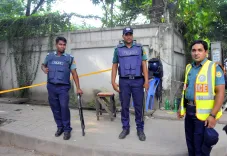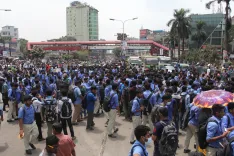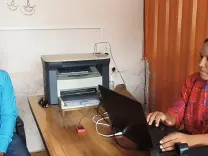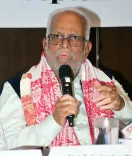Why Did Pakistan's High Commissioner to Bangladesh Flee?
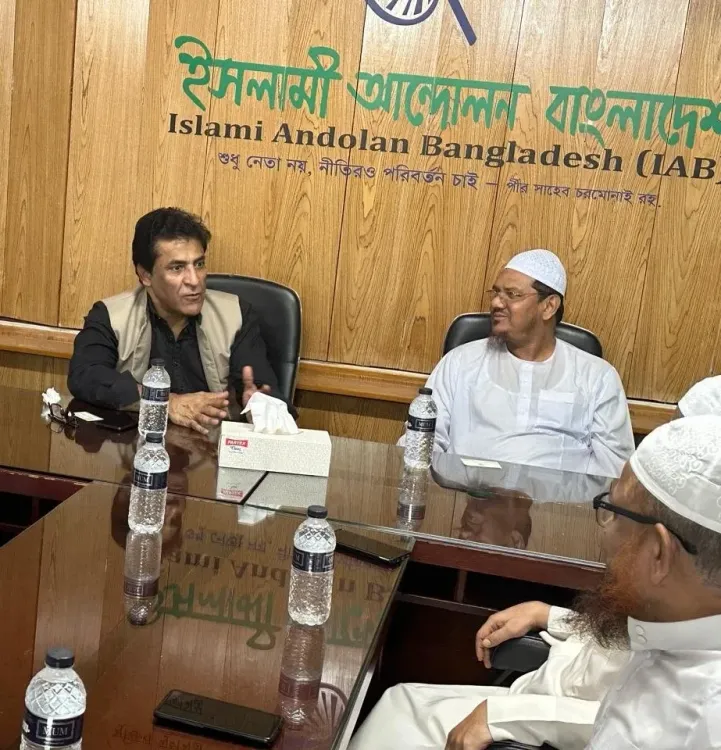
Synopsis
Key Takeaways
- Syed Ahmed Maroof has unexpectedly departed amid scandal allegations.
- His absence is being managed by Muhammad Asif, the Deputy High Commissioner.
- Past recalls of diplomats hint at ongoing issues within diplomatic relations.
- Public interest is high regarding the implications of this situation.
- Historical context indicates a pattern of controversies involving Pakistani diplomats in Bangladesh.
Dhaka, May 13 (NationPress) The abrupt departure of Pakistan's High Commissioner to Bangladesh, Syed Ahmed Maroof, has ignited a whirlwind of speculation across social media and within political and diplomatic spheres extending from Dhaka to Islamabad.
According to sources from Bangladesh's Ministry of Foreign Affairs, local news outlets have reported that Maroof has taken an indefinite leave starting May 11 and is currently outside the country. It's noted that Maroof left Dhaka on an Emirates flight to Pakistan via Dubai without any formal protocol or procedures.
In his absence, Muhammad Asif, Pakistan's Deputy High Commissioner in Dhaka, is acting as the High Commissioner. Typically, the Deputy High Commissioner assumes responsibilities when the primary officer is unavailable.
Social media chatter suggests that Maroof, who commenced his diplomatic role in December 2023, was recalled due to his involvement in a scandal linked to a woman at a hotel in Cox's Bazar.
According to anonymous officials, "Ahmed Maroof was involved with Hafiza Haque Shah, a senior employee at a Bangladeshi bank. Embassy officials were aware of her regular visits to him. However, during Maroof's recent trip to Cox's Bazar, their illicit relationship became too evident to hide, prompting Pakistan to withdraw this key asset."
The public is buzzing with discussions surrounding Maroof's controversial conduct with Shah. Reports indicate that, in light of a looming diplomatic scandal, Pakistan had no option but to remove one of its significant operatives from Bangladeshi territory.
Details show that Maroof left Dhaka on May 8 for Cox's Bazar, planning to return on May 10. This marked his second visit to the area within three months.
Previously, Maroof had visited Cox's Bazar on February 6-7 for a holiday with his spouse, where he also held an extended meeting with representatives of the Rohingya community, including the Arakan Rohingya Salvation Army (ARSA) and Jamaat-e-Islami (JeI), amidst their ongoing scrutiny for extremism associations.
On February 8, the first party workers' conference in 16 years took place in Cox's Bazar, attended by Jamaat Ameer Shafiqur Rahman. This event was organized by the local branch of Bangladesh Jamaat-e-Islami.
Sources further indicated that over the past nine months, Maroof extensively traveled across the nation, holding meetings and engaging with fringe groups in the politically charged atmosphere of Muhammad Yunus's Bangladesh, working to reestablish Pakistani influence through soft power and ideological infiltration.
Interestingly, this marks the third instance of Pakistani diplomats being recalled from Bangladesh.
It’s noteworthy that in January 2015, Mazhar Khan, a Pakistani official at the Dhaka mission, was expelled following allegations of funding Islamist extremists and distributing counterfeit currency.
In December 2015, Pakistan recalled Farina Arshad, a junior diplomat from Dhaka, amid accusations of financing terrorist activities in Bangladesh. Bangladeshi media claimed that Farina had developed alleged connections with Jamaat-ul Mujahideen Bangladesh (JMB) operative Idris Sheikh.
The Pakistani High Commission in Dhaka has previously been associated with dubious activities, including financing Islamist radicals and the circulation of counterfeit currency.



